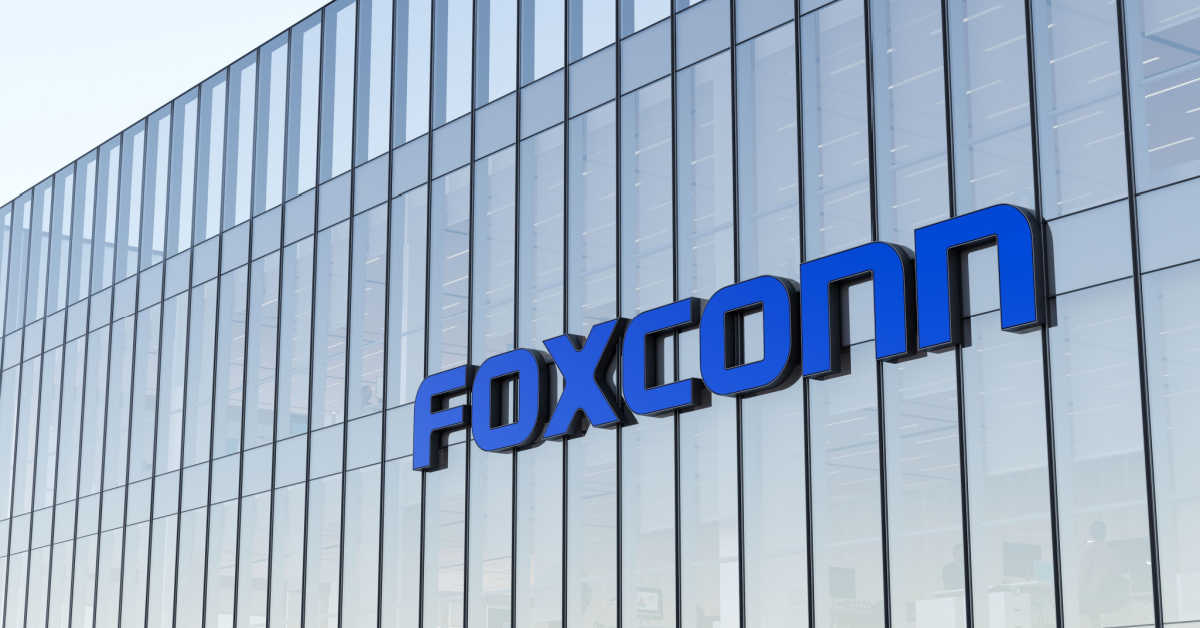Foxconn, India's Star Recruit For Semiconductor Manufacturing, Quits

Taiwanese tech manufacturer Hon Hai Technology Group, aka Foxconn, said on Monday it is withdrawing from a $19.5 million semiconductor and display manufacturing joint venture with Indian mining and power generation company Vedanta.
In a statement released on the Taiwan Stock Exchange, Foxconn said the decision to not move forward on the joint venture was mutual and that is was "working to remove the Foxconn name from what now is a fully owned entity of Vedanta."
"Foxconn is confident about the direction of India's semiconductor development. We will continue to strongly support the government's 'Made In India' ambitions and establish a diversity of local partnerships that meet the needs of stakeholders," added the Taiwanese org.
It also said in a separate statement: "There was recognition from both sides that the project was not moving fast enough, there challenging gaps we were not able to smoothly overcome, as well as external issues unrelated to the project.
"We have seen some media reports portraying Foxconn's withdrawal from the join venture with Vedanta as a negative example of the Group's investment integrity. That is absolutely not the case. When Foxconn course corrects, it is done only after heavy considerations the near-term impact to our stakeholders, and on the long-term corporate health to the Group and our shareholders."
This is not welcome news for India, which in 2021 announced a subsidy scheme to lure semiconductor manufacturers to its shores.
The nation's offer to Foxconn and Vedanta was unarguably generous. Sweeteners included defraying the cost of building chip plants on Indian soil, plus a 40 percent capital subsidy, cheap electricity for ten years, tax breaks, paying 50 percent of the cost to build a desalination plant, subsidized access to water, up to 200 acres of land subsidized by 75 percent, reimbursement of stamp duty and registration fees, and more.
No major semiconductor player chose to participate. While Foxconn and Vedanta did sign up, neither has experience in the field.
While India has bootstrapped tech industries, semiconductor giants' seeming disinterest in the scheme was notable.
And with Foxconn's change of mind, the biggest name attached to the effort has bailed.
According to Reuters, concerns about incentive approval delays contributed to Foxconn's switch.
- Cisco to manufacture telecoms gear in India – but not much and not soon
- Foxconn hedges its bets: US and China will make up, but diversify just in case
- Semiconductor firms: China lockdowns play havoc with supply and demand
- China chip material export controls just the tip of the iceberg, warns official
Vedanta will pursue the project alone.
"Vedanta reiterates that it is fully committed to its semiconductor fab project and we have lined up other partners to set up India's first foundry," said the mining concern, according to numerous reports.
"We will continue to grow our semiconductor team, and we have the license for production-grade technology for 40nm from a prominent Integrated Device Manufacturer (IDM). We will shortly acquire a license for production-grade 28nm as well," insisted Vedanta.
Minister of State for Electronics and Information Technology Rajeev Chandrasekhar tweeted that Foxconn's reversal will not impact India's efforts to reach its semiconductor industry goals. "It allows both companies to independently pursue their strategies for Indian [semiconductors and electronics,]" he added.
Chandrasekhar then lamented that many in Congress, India's Parliament, had sat idle while China grew over the past 30 years.
The fall of the joint venture is a disappointment not only to those pushing India's industry goals, but also to those who hoped India could quickly help to diversify global silicon supply chains.
A reliance on Chinese products and materials has proved problematic. First during COVID when factories shut down, impacting those downstream on the supply chain, and then as China implements chip-related export controls – a move US treasury secretary Janet Yellen has characterized as "punitive."
While this is a bad moment for India and its silicon ambitions, it is far from the end. The US and India recently announced a broad partnership on semiconductor technologies including investments by semiconductor concerns Micron and Applied Materials. ®
From Chip War To Cloud War: The Next Frontier In Global Tech Competition
The global chip war, characterized by intense competition among nations and corporations for supremacy in semiconductor ... Read more
The High Stakes Of Tech Regulation: Security Risks And Market Dynamics
The influence of tech giants in the global economy continues to grow, raising crucial questions about how to balance sec... Read more
The Tyranny Of Instagram Interiors: Why It's Time To Break Free From Algorithm-Driven Aesthetics
Instagram has become a dominant force in shaping interior design trends, offering a seemingly endless stream of inspirat... Read more
The Data Crunch In AI: Strategies For Sustainability
Exploring solutions to the imminent exhaustion of internet data for AI training.As the artificial intelligence (AI) indu... Read more
Google Abandons Four-Year Effort To Remove Cookies From Chrome Browser
After four years of dedicated effort, Google has decided to abandon its plan to remove third-party cookies from its Chro... Read more
LinkedIn Embraces AI And Gamification To Drive User Engagement And Revenue
In an effort to tackle slowing revenue growth and enhance user engagement, LinkedIn is turning to artificial intelligenc... Read more

